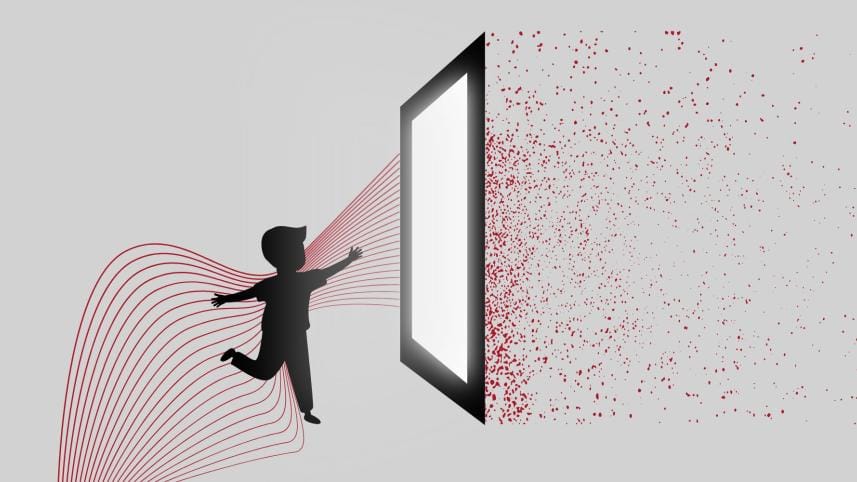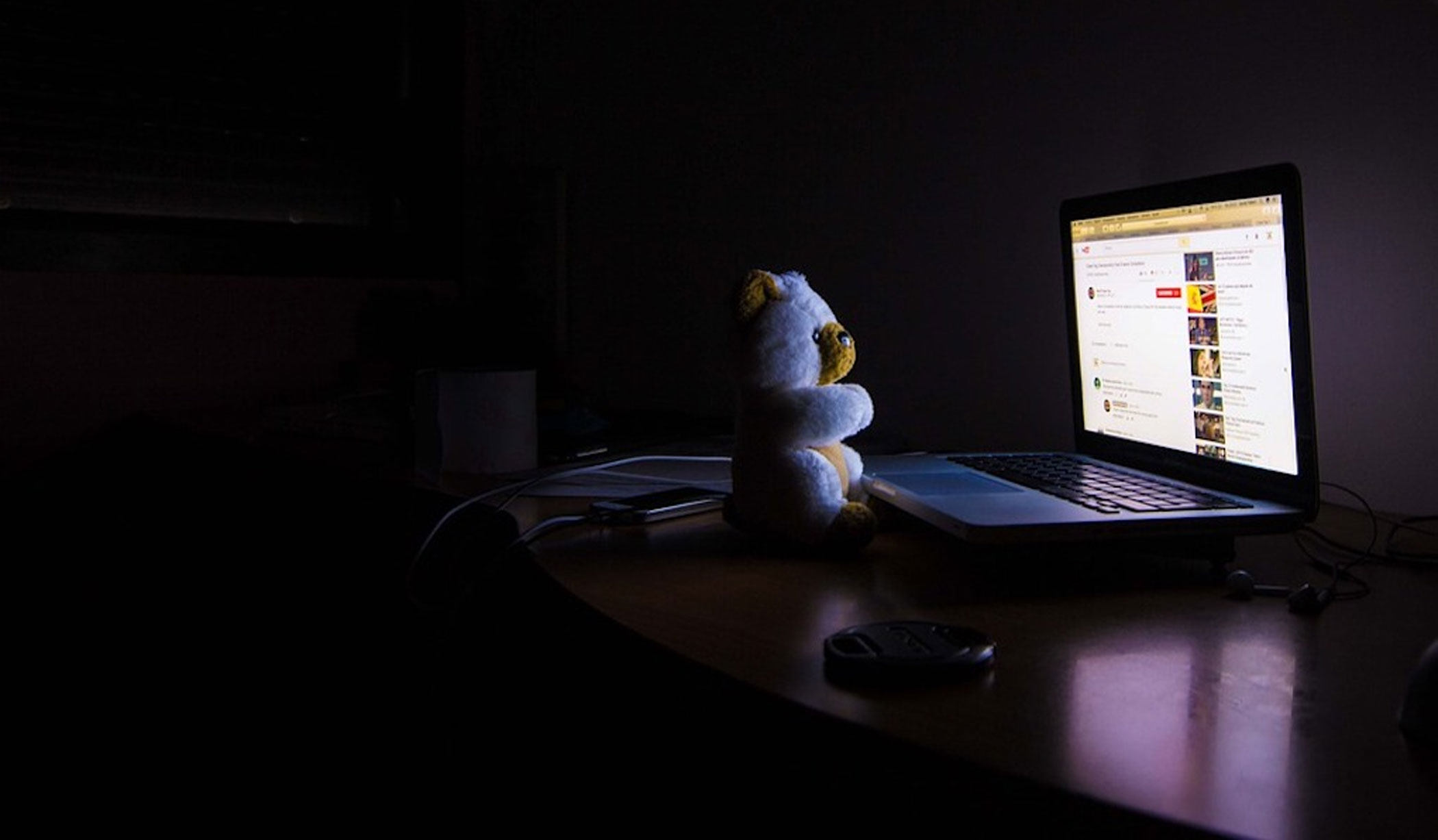Children's safety online remains a concept

With many schools being closed because of the ongoing nationwide political strikes and blockades, children from all strata of society are once again logged in for online classes. Most of these children have a phone and full access to the internet. However, as far as their online activities are concerned, parents cannot possibly monitor it all.
Unfortunately, children can be exposed to anything on the internet, without realising the seriousness of a given situation. And parents, too, are of not much help, as many refuse to believe that their child can do anything wrong.
Many of the people encountered by children on the internet may expose them to inappropriate content, including cyberspace's most popular vice: pornography. In the form of pictures, videos or text, sexually provocative content is often laid bare for children or adolescents.
Sirajul Hossain, the managing director at Cybernetic Systems Ltd and a social researcher, has been voicing his concerns regarding children and the threat of pornography for a long time. He believes that as discussions surrounding sex are taboo in our society, the secrecy gives rise to curiosity, leading to misogynistic traits in boys and exhibitionist behaviour in girls.
Research conducted by Sirajul and others shows that the use of the internet and social media platforms is feeding girls' imaginations. They often develop histrionic personalities, and the unlimited access to mobile phones gives them a great degree of freedom. Some young girls may lead secret lives, unbeknownst to their guardians. In the extreme cases, their online conduct ends up making them victims of abusive and exploitative situations.
Many of the people encountered by children on the internet may expose them to inappropriate content, including cyberspace's most popular vice: pornography. In the form of pictures, videos or text, sexually provocative content is often laid bare for children or adolescents.
Shabnaaz Zahereen is a child protection specialist working for Unicef, and her research tries to explain how child pornography and live online sexual abuse materials have turned into a million-dollar business. Child exploiters use cyberspace to network for child sex tourism, prostitution, and even trafficking.
The allure of money also works as an incentive for young people indulging in pornography. Contrary to what we believe, such business schemes are aplenty. Participants earn good money by telling fabricated, erotic stories about themselves, and even engaging in cyber sex.
Specialists like Sirajul and Zahereen believe that local pornography and obscene content that are widespread denounce and humiliate women. These are worse than erotica because they give rise to violence against women and girls.
Moreover, drugs and substance abuse by adolescents also induce an affinity for harmful sexual behaviour. The uncontrolled use of the internet and digital technology, negligence and ignorance from the parents' side, and lack of sensitivity from teachers, communities and law enforcement agencies have led to such a situation.
Added to these is the loose enforcement of legislation. Lack of reporting and a weak digital infrastructure (to track and monitor abusive and sexual behaviour) are making children even more vulnerable.
Advocate Salma Ali, currently the president of the Bangladesh National Woman Lawyers' Association (BNWLA) and former president of Action Against Trafficking and Sexual Exploitation of Children (ATSEC), has many years of experience in legally dealing with traffickers and victims of trafficking.
According to her recent findings, underage girls living in slums are regularly abused by slum managers when their mothers go off to work. When the children become victims, these mothers do not seek legal support for fear of losing a place to stay or facing societal backlash. Once these girls become victims of abuse—and given that they do not get support from their family or from society—their attitude changes and they look for the kind of escape that social media offers.
In some cases, the girls fall victim to "love" through their engagements in the virtual world. They take aggressive measures to get out of their homes and experience "freedom." Even sadder is the fact that, after running away from home to marry a boy they met online or being trapped by trafficking gangs, many girls often do not want to be rescued.
Advocate Salma believes that there should have been a system to monitor children from both privileged and underprivileged backgrounds. She, like others, asserts that we cannot establish justice if the crime is unaddressed and the criminals are not punished. Organised gangs are still out of reach and punishment.
Cybercrime prevention units in Bangladesh's police force lack urgent action; their investigation skills are very limited compared to the number of cases reported yearly. Reports suggest that there are only seven cyber tribunals in the country that manage such cases. They are not even well-equipped in terms of technical knowledge and infrastructure, especially for handling matters related to children. Even the new Cyber Security Act does not have any specific provisions regarding children, who are often victims of online violence, pornography or other exploitation.
The following months will prove crucial in the political history of Bangladesh. And with the academic year closing in, this will perhaps mean more reliance on online classes. Hence, all concerned authorities must urgently take steps to ensure a safer online space for children.
Raffat Binte Rashid is features editor at The Daily Star.
Views expressed in this article are the author's own.
Follow The Daily Star Opinion on Facebook for the latest opinions, commentaries and analyses by experts and professionals. To contribute your article or letter to The Daily Star Opinion, see our guidelines for submission.




 For all latest news, follow The Daily Star's Google News channel.
For all latest news, follow The Daily Star's Google News channel. 


Comments